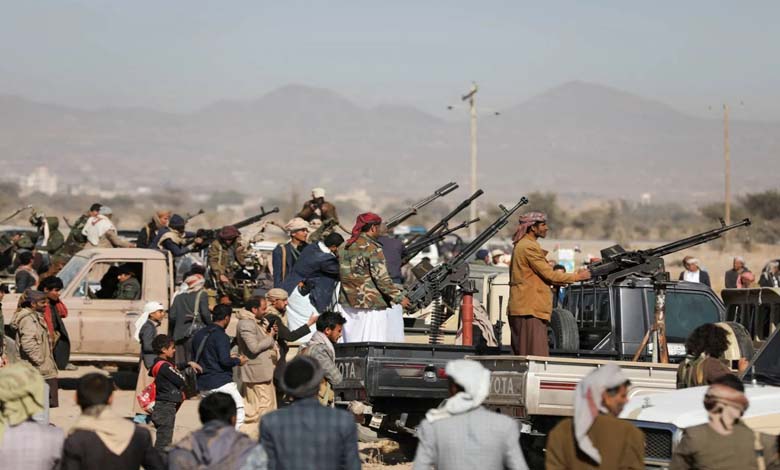Justice in the Grip of the Houthis: How Yemen’s Judiciary Became a Political Tool of Repression

In a move that underscores the Houthis’ deep control over state institutions in areas under their rule, Yemeni reports revealed the establishment of the so-called “Supreme Authority of Justice,” a body intended to replace the former Supreme Judicial Council. This restructuring represents an explicit attempt to redesign the judiciary to align with the movement’s political and ideological goals.
-
Houthi Leader’s Defection Reveals Cooperation Between the Militias and Al-Qaeda
-
Houthis detain UN staff, including UNICEF representative
According to analysts, this initiative marks the beginning of a shift toward what they describe as “sectarian justice” a judicial system shaped by ideology rather than constitutional principles.
The Houthis have dismissed dozens of judges associated with the previous judicial system and replaced them with loyalists trained in religious institutes affiliated with the group.
The newly established authority has also redefined appointment and litigation mechanisms, placing the judiciary directly under the supervision of the Supreme Political Council the executive body controlled by the Houthis in Sana’a.
-
The Deluge toll: 1,000 Houthis killed in 19 months
-
Between Denial and Confusion: Why Did the Houthis Delay Announcing Their Casualties?
However, the changes extend beyond administrative structures to the very essence of justice itself. Courts now issue politically motivated rulings against opponents, journalists, and activists, often under broad charges such as “treason” or “corruption on earth.”
Human rights sources cited that these trials are being used as tools of intimidation, silencing dissent, and legitimizing the seizure of private property under the pretext of “protecting national sovereignty.”
Observers warn that this dangerous shift reflects a deliberate effort to “sectarianize” the judiciary, turning it into an instrument of ideological control modeled after the Iranian system that heavily influences the Houthis’ doctrine.
-
Houthis redeploy military communication networks in Hodeidah
-
Food for loyalty… how the Houthis turned their territories into a vast prison
Instead of serving as an impartial arbiter of justice, the judiciary in Houthi-controlled areas has become a mechanism of political enforcement. This subversion undermines the very foundations of justice and threatens any future effort to rebuild a lawful state in Yemen.
The report concludes that the judiciary under Houthi rule is no longer a constitutional institution but rather a legal façade legitimizing the de facto authority’s rule. Judicial decisions are now driven by loyalty instead of competence. As long as these practices persist, justice in Yemen risks remaining a political weapon — used to eliminate opponents rather than uphold fairness or protect rights.












